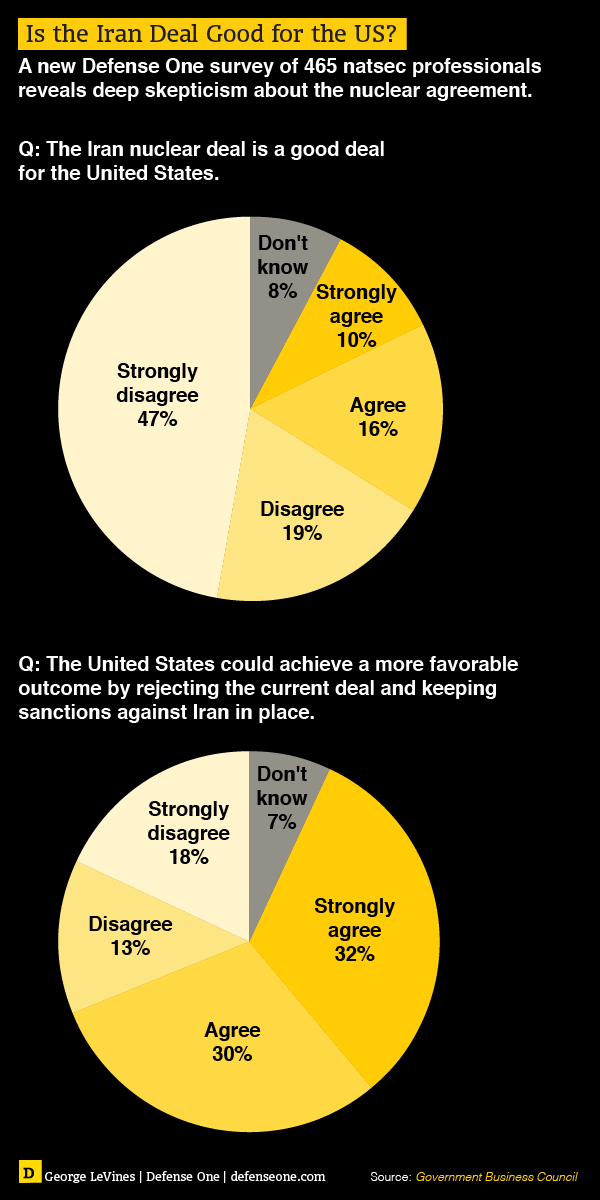Survey: 2/3 of Natsec Pros Give Iran Deal Thumbs Down
A Defense One survey finds deep skepticism among U.S. active-duty military and civilian government employees in national-security jobs.
Just 26 percent of U.S. national security workers believe that the West’s nuclear agreement with Iran is good for America, and even fewer think it will help Israel or Saudi Arabia, a new Defense One survey shows.
Asked to evaluate the statement “The Iran nuclear deal is a good deal for the United States,” some 66 percent of responders disagreed — and two-thirds of that group “strongly disagreed.”
The group’s outlook was even dimmer about the deal’s effect on U.S. allies. Most respondents said that it would have a somewhat or mostly negative impact on the security of Israel (71%), Saudi Arabia (67%), the Gulf Arab states (67%), Jordan (59%), Iraq (58%), and Europe (53%).
So what should the U.S. do about it? Some 62 percent said that the U.S. would be better off simply rejecting the deal and keeping current sanctions in place. (31 percent disagreed.) And about half said that the U.S. should compensate by increasing arms sales to countries in the Middle East. (38 percent disagreed.)

The survey comes as Obama administration officials appear to be wrapping up the 34 Senate votes they need to stop congressional Republicans’ efforts to scuttle the deal.
The survey was conducted by Defense One and Government Business Council, the research division of Government Executive Media Group, between August 20-27. The survey was emailed to a random sample of Defense One, Government Executive and Nextgov subscribers. There were 465 respondents from the Departments of Defense, Homeland Security, State, and the military service branches. Of that total, 15 percent were active duty military and 7 percent were military reservists. Fifty-eight percent of respondents are at least GS/GM-13, or military equivalent. The margin of error is +/-3.29 percent.
NEXT STORY: The West Point Professor Who Contemplated a Coup




